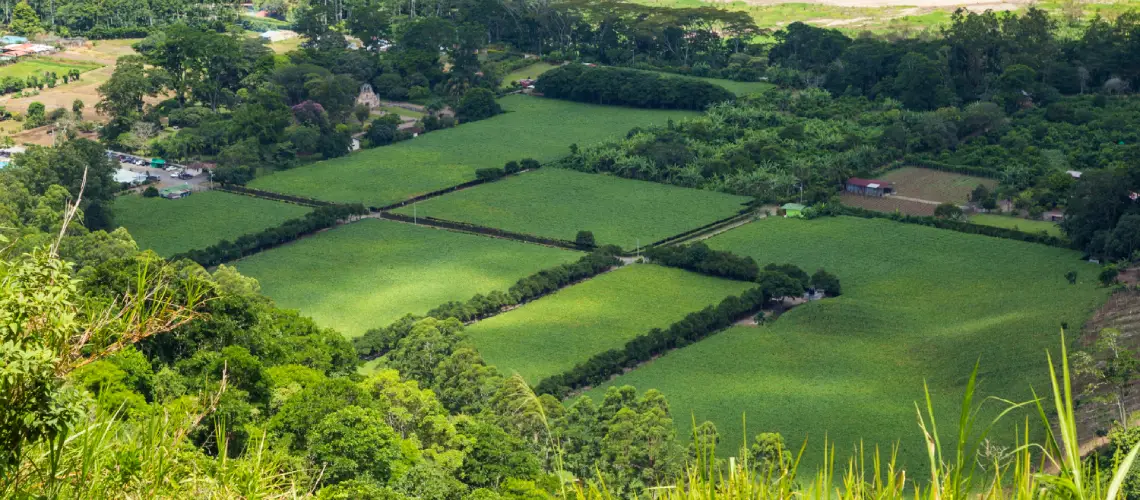Rural property valuation in New South Wales (NSW) involves more than just estimating land size and location. With variables ranging from agricultural productivity and water rights to infrastructure and zoning, valuing rural land requires specialist knowledge and local expertise.
Whether you’re buying, selling, refinancing, or managing a rural estate, a professional rural valuation provides the accurate and reliable insight needed to make informed decisions.
What Is Rural Property in NSW?
Rural property typically includes land used for:
- Broadacre farming
- Livestock grazing
- Cropping or orchards
- Vineyards and viticulture
- Mixed-use agricultural production
- Rural lifestyle properties (acreages without commercial farming)
These properties are commonly located in regional NSW areas, such as the Hunter Valley, Riverina, Northern Tablelands, Central West, and Southern Highlands.
When Is a Rural Property Valuation Required?
- Buying or selling rural land
- Securing finance or refinancing through a rural lender
- Farm succession planning or inheritance
- Capital gains tax (CGT) or stamp duty reporting
- Estate settlements or family law disputes
- Insurance assessments or lease negotiations
Given the complexity of rural land, valuations are often required for banking, legal, and taxation purposes.
How Is a Rural Property Valuation Conducted?
A rural valuation involves both onsite inspection and data analysis. The valuer will:
- Inspect the property’s land, improvements, fencing, water systems, and infrastructure
- Analyse recent sales of comparable rural properties in the same region
- Assess the property’s productive capacity and income potential
- Factor in water rights, soil quality, topography, and climatic risks
- Review any dwelling or residential structures on the land
- Consider zoning, land use restrictions, and potential for subdivision or rezoning
Key Factors That Influence Rural Property Value in NSW
Land Size and Usability
Larger holdings with greater usability and pasture quality typically attract higher values. Properties with steep slopes or limited arable land may be less valuable per hectare.
Water Access and Entitlements
Access to permanent water (dams, rivers, bores) or secure water entitlements (especially in irrigation zones like the Murrumbidgee or Murray) significantly impacts valuation.
Soil Fertility and Agricultural Output
Soil type, condition, and productivity influence potential crop yields or grazing returns. Fertile regions like the Riverina often command premiums.
Infrastructure and Improvements
Shearing sheds, fencing, cattle yards, grain silos, and machinery sheds add value, particularly when well-maintained. A quality homestead can also boost appeal for lifestyle buyers.
Zoning and Development Potential
Land zoned for primary production or rural residential use affects development potential. Some areas may allow subdivision or rezoning subject to council approval.
Location and Access
Proximity to major roads, markets, and regional centres influences transport costs and accessibility—important for commercial operations.
Special Considerations in Rural Valuation
- Lifestyle Acreages: Small rural holdings near towns may attract lifestyle buyers, leading to non-agricultural premiums
- Agistment or Leasing Arrangements: Valuers may consider lease income as part of the property’s value
- Environmental Overlays: Protected vegetation, biodiversity corridors, or heritage listings can restrict land use and impact valuation
- Natural Disaster Risk: Fire, drought, and flood exposure are factored into the risk profile
Cost of Rural Property Valuation in NSW
| Property Type | Estimated Valuation Fee |
| Small acreage/lifestyle block | $600 – $1,200 |
| Medium grazing or cropping farm | $1,500 – $3,000 |
| Large-scale broadacre enterprise | $3,500 – $7,000+ |
| Complex multi-title rural portfolio | $5,000 – $10,000+ |
Fees depend on property size, complexity, and location (remote areas may incur additional costs).
Choosing a Qualified Rural Valuer in NSW
Look for a valuer who:
- Is a Certified Practising Valuer (CPV)
- Is accredited with the Australian Property Institute (API)
- Has experience in agricultural and rural markets
- Understands regional NSW planning laws and environmental factors
- Can provide a comprehensive report suitable for banks, legal, or tax purposes
Conclusion
Rural property valuation in NSW requires a unique blend of agricultural insight, local market knowledge, and compliance with professional standards. Whether your land is used for farming, grazing, or lifestyle, a professional valuation offers the clarity and confidence you need for your next financial or legal decision.
From Orange to Tamworth, Wagga Wagga to Dubbo, working with a qualified rural valuer ensures your asset is assessed fairly, accurately, and in line with its full potential.



